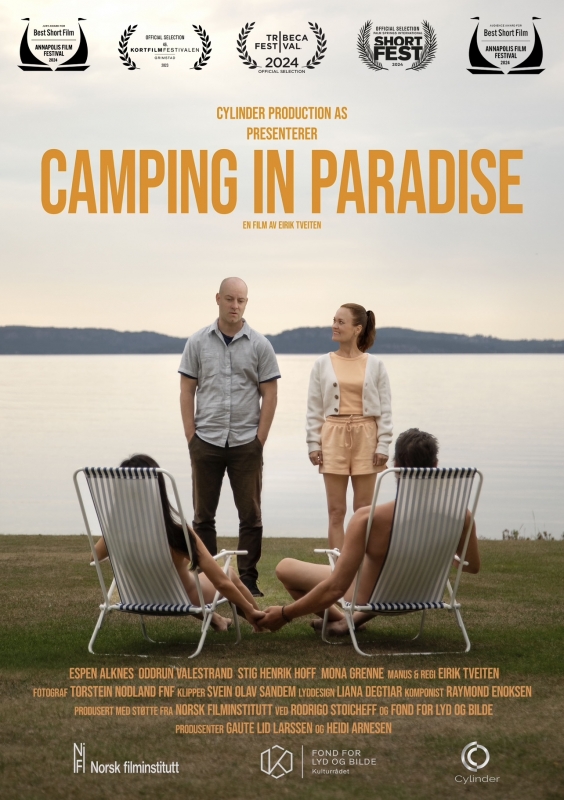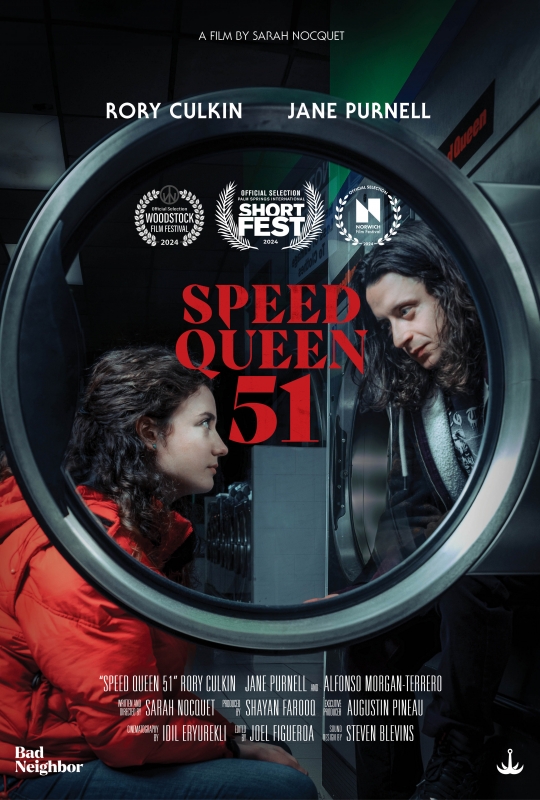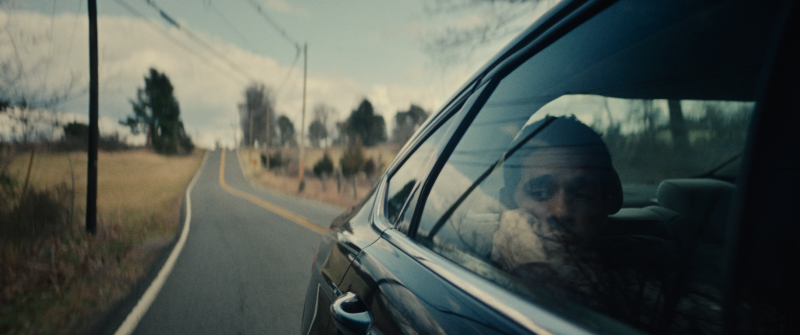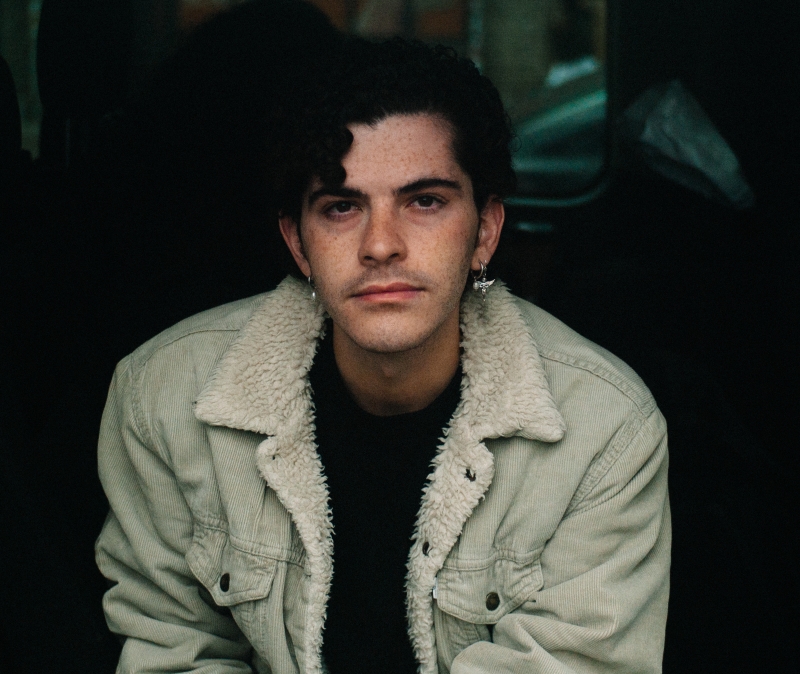|
|
||
|
Pro Tools
FILMFESTIVALS | 24/7 world wide coverageWelcome ! Enjoy the best of both worlds: Film & Festival News, exploring the best of the film festivals community. Launched in 1995, relentlessly connecting films to festivals, documenting and promoting festivals worldwide. Working on an upgrade soon. For collaboration, editorial contributions, or publicity, please send us an email here. User login |
Interview with Mike Ott on LITTLEROCK
Mike Ott’s film, LITTLEROCK (2010) has traveled the globe (most recently in Copenhagen at CPHPIX 2011 and SFIFF 2011 in San Francisco) with this ‘coming-of-age’ road movie about the little pleasures in life and the fascinations of cultural differences and similarities. A film about finding translation while seemingly lost in it, this film communicates universally and one finds oneself celebrating the similarities of culture rather than the differences.
ME: How did you come up with the title LITTLEROCK?
MIKE: The title came from the name of the town that we shot in. Most people think of Little Rock Arkansas, but there’s a small Littlerock about an hour outside of Los Angeles. For me it symbolizes the importance of place/setting in the film. The milieu of the film is a character in itself.
ME: What gave you the idea to make this film about two Japanese tourists getting stranded in small town California?
MIKE: The town of Littlerock is such a bizarre place to me as an American who grew up near it my entire life… so I just started thinking about the idea of what it would be like for a foreigner to experience it. How would they make sense of it and how would they react.
ME: Would you consider your film a good old fashion road movie? Or is there a fresh new take on this film that seeks to mix an age-old journey of self-discovery with a new modern context of CA today and the alienation and yet familiarity any foreigner can feel in this land?
MIKE: Yeah, I think it’s more of a mix. It’s more of a coming-of-age film than a road trip film. I think the “alienation yet familiarity” is something that isn’t exclusive to Littlerock, it’s something universal. The way when I travel abroad, I find beauty in the things that maybe the locals find mundane or strange and vice versa.
ME: What kind of impact has your film had in USA? How has the film been received abroad?
MIKE: We’ve been really blessed with an amazing festival run and awards for the film. The film took home a Gotham award, an Independent Spirit award and a handful of other awards at home and abroad. We’ve played at some amazing US festivals: AFI Fest, San Francisco IFF, etc. So I feel the film has actually done much better than I ever imagined it would… but the film has played at festivals abroad much more than in the US. I think at this point we’ve screened at over 20 festivals abroad: Viennale, Vancouver, Warsaw, Torino, Thessaloniki, Hong Kong, Cairo, etc.
ME: How difficult was this film to produce? How long did it take and how many countries were involved?
MIKE: The film wasn’t easy to make, but it was definitely fun. I’ve had a much tougher time on other films I’ve worked on. It took us 26 days to shoot… the US was the only country involved, although we did get a little bit of money from an investor in Japan.
ME: How did you go about casting the film?
MIKE: Casting was a mix of actors I already knew as well as ones I found during casting sessions. I really enjoy casting so for me casting never really seems difficult. I think the one difficult aspect is that it can be a bit tough to find Japanese actors for low-budget films in the US. At least that was the case for us.
ME: What made you want to tell this story? When were you first inspired to write it?
MIKE: For me it started when I was traveling to film festivals abroad with my first film… when I would be in situations and didn’t speak the language and would feel out of place. It made me start thinking about what it must be like for someone when they come to America and don’t speak English and how hard it is to assimilate.
ME: There is a form of communication you use in this film which is almost pre-language because of the language barrier between the tourists and the locals. What do you want to say about that in this world of major communication modes? How is it that we are still lost in translation with so much communication technology today and globalization?
MIKE: I think what’s interesting is that we all can communicate if we need to through hand gestures and facial expressions…. That’s something that I find really fascinating, how we can find someone funny even though we don’t know what they’re saying, or we can tell that someone is sad, or angry by the inflection in their voice or by their body language.
ME: This is almost like LOST IN TRANSLATION but the opposite situation with the Japanese coming to California. Were you in any way inspired by Coppola’s film?
MIKE: Not really. For this film we were thinking more about the Werner Herzog film Stroszek… where some Germans move to Wisconsin to try and find the American dream, but it doesn’t quite turn out how they had hoped. If I remember correctly, in Lost in Translation … no one in the film is really lost in translation.
ME: Can you speak about some of your future projects?
MIKE: I’m making my next film soon. It’s a partial road trip film. It’s about an immigrant prostitute who is living illegally in the US and trying to save up enough money to get back home.
ME: Is there anything you would like to express about your film that you haven’t been able to? Anything you would like to add?
MIKE: Maybe that I’m really proud of everyone who worked on this film. I don’t think they get enough credit, but filmmaking is a collaborative art and my film wouldn’t be doing as well as it is if it weren’t for all their hard work and dedication.
Interview by, Vanessa McMahon April 30, 2011 for CPHPIX 2011, Copenhagen.
To read more about Mike Ott’s film, read reviews from the following sites:LITTLEROCK IN SF: http://fest10.sffs.org/films/film_details.php?id=47LITTLEROCK IN VIENNA: http://www.quietearth.us/articles/2010/10/19/VIFF-2010-Review-of-Mike-Ot... IN ICELAND: http://icelandchronicles.com/2010/09/riff-day-2-littlerock-by-mike-ott/L... withIndieWire: http://www.indiewire.com/article/futures_gotham_nominated_littlerock_dir... director of LITTLEROCK Mike Ott 09.05.2011 | Vanessa McMahon's blog Cat. : AFI FEST Album Albums recorded at Electric Lady Studios America Arkansas CAIRO California Contact Details Copenhagen Director director of LITTLEROCK Mike Entertainment Entertainment http://fest10.sffs.org/films/film_details.php?id=47LITTLEROCK http://icelandchronicles.com/2010/09/riff-day-2 http://www.indiewire.com/article/futures_gotham_nominated_littlerock_dir http://www.quietearth.us/articles/2010/10/19/VIFF-2010-Review-of-Mike-Ot Human Interest Human Interest Independent Spirit Award Interview with Mike Ott on LITTLEROCK Japan Law Law Little Rock LITTLEROCK Los Angeles Major Mike Ott Next Magazine Person Career Person Location San Francisco Thessaloniki Vancouver Vanessa McMahon April Viennale Warsaw Wisconsin
|
LinksThe Bulletin Board > The Bulletin Board Blog Following News Interview with IFTA Chairman (AFM)
Interview with Cannes Marche du Film Director
Filmfestivals.com dailies live coverage from > Live from India
Useful links for the indies: > Big files transfer
+ SUBSCRIBE to the weekly Newsletter Deals+ Special offers and discounts from filmfestivals.com Selected fun offers
> Bonus Casino
User imagesAbout Vanessa McMahonThe EditorUser contributions |




























